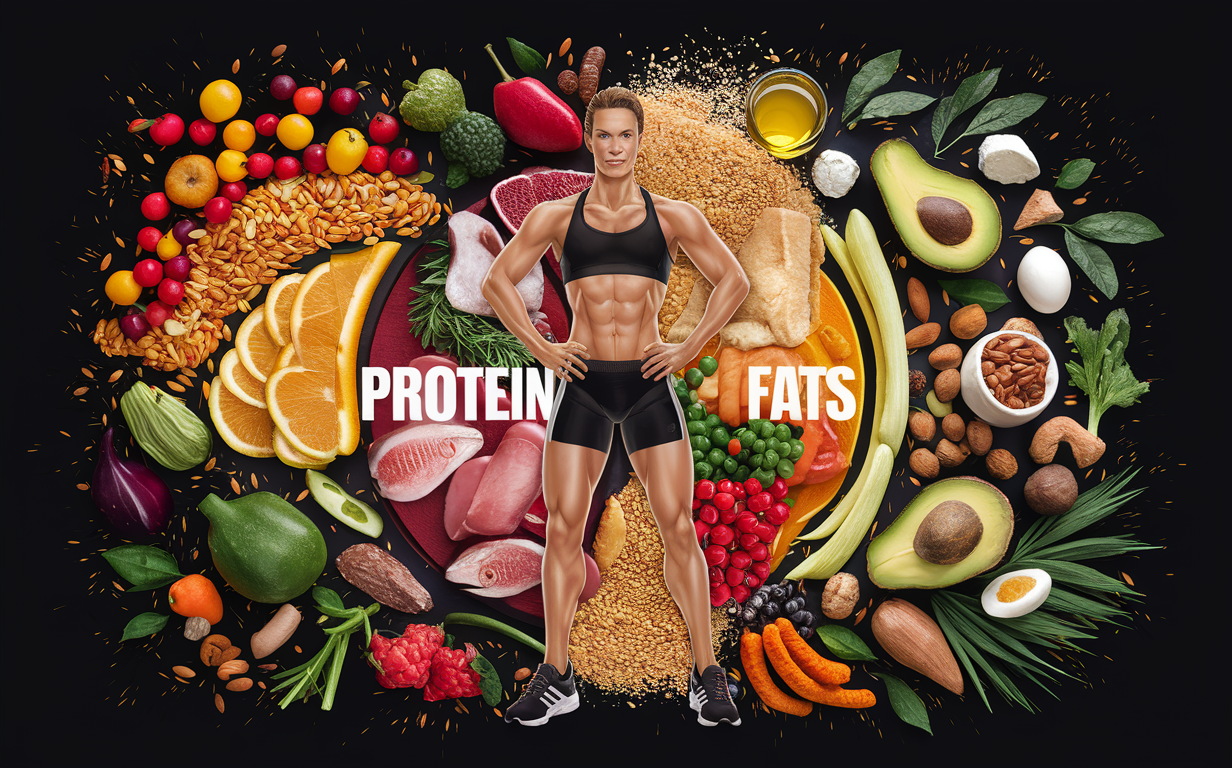
Welcome to M-Power Fitness Coaching, where we believe that every woman deserves to feel strong, confident, and empowered through fitness and nutrition. Today, we’re diving into the topic of macronutrient balance and quality – two essential elements of a successful fitness journey. Let’s clarify what macronutrients are and why they matter for your health and fitness goals.
Macronutrients are essential nutrients that our bodies need in large quantities. They include carbohydrates, proteins, and fats. Balancing your macronutrient intake and focusing on their quality can significantly impact your energy levels, muscle growth, and overall health.
Macronutrients provide the energy our bodies need to function. They are essential for building and repairing tissues, producing enzymes, and maintaining a healthy immune system.
While balancing your macronutrient intake is crucial, the quality of the macronutrients you consume is equally important. Choosing nutrient-dense, whole foods ensures that your body receives not only the essential macronutrients but also a wide range of vitamins, minerals, and beneficial plant compounds.
Whole foods, such as fruits, vegetables, whole grains, lean proteins, and healthy fats, are typically more nutrient-dense and provide a wealth of health benefits. On the other hand, processed and refined foods often lack essential nutrients and may contain harmful additives, preservatives, and excessive amounts of sugar, salt, and unhealthy fats.
| Macronutrient | High-Quality Sources |
|---|---|
| Carbohydrates | Whole grains (brown rice, quinoa, oats), fruits, vegetables, legumes |
| Proteins | Lean meats, fish, eggs, Greek yogurt, lentils, chickpeas, nuts, and seeds |
| Fats | Avocados, nuts, seeds, olive oil, fatty fish (salmon, mackerel) |
By prioritizing the quality of your macronutrient sources, you can maximize the nutritional value of your diet and support your fitness goals while promoting overall health and well-being.
Carbohydrates are the primary source of energy for our bodies. They are crucial for fueling workouts and replenishing energy stores. Complex carbs, such as whole grains and vegetables, provide sustained energy and essential fiber.
Proteins are essential for muscle growth and repair. They help build and maintain tissues, produce enzymes, and support a healthy immune system. Aim for a variety of protein sources, including lean meats, eggs, dairy, legumes, and nuts.
Fats are an essential energy source and play a crucial role in cell function. They help absorb vitamins, protect organs, and maintain body temperature. Focus on healthy fats, such as avocados, nuts, seeds, and olive oil.
Macronutrients play a crucial role in supporting optimal fitness and overall health. Here are some data-driven facts and stats that highlight their importance:
By understanding the importance of macronutrients and their role in fitness, you can make informed decisions about your diet and optimize your health and performance.
Contact us today to learn more about how we can help you create a balanced, nutrient-dense meal plan that supports your fitness goals.
Balancing your macronutrient intake is essential for optimal health and fitness. Aim for a ratio of 40% carbohydrates, 30% protein, and 30% healthy fats. Adjust this ratio based on your individual needs and goals.
The quality of your macronutrient sources is just as important as their balance. Focus on whole, nutrient-dense foods, such as fruits, vegetables, lean proteins, and healthy fats. Avoid processed foods, sugars, and unhealthy fats.
| Macronutrient | Food Sources | Benefits |
|---|---|---|
| Carbohydrates | Whole grains, fruits, vegetables | Provide energy, essential fiber |
| Proteins | Lean meats, eggs, dairy, legumes, nuts | Build and repair tissues, produce enzymes |
| Fats | Avocados, nuts, seeds, olive oil | Absorb vitamins, protect organs, maintain body temperature |
| Processed Foods | Whole Foods | |
|---|---|---|
| Nutrient Density | Low | High |
| Macronutrient Balance | Imbalanced | Balanced |
| Health Impact | Negative | Positive |
To balance your macronutrients (carbohydrates, proteins, and fats) with your fitness routine, consider the following:
Adjust your macronutrient ratios based on your specific fitness goals, activity levels, and individual needs. Consult a certified nutritionist or dietitian for personalized guidance.
Macronutrient balance and quality are essential components of a successful fitness nutrition plan. By focusing on whole, nutrient-dense foods and balancing your macronutrient intake, you can fuel your body for optimal health and performance. At M-Power Fitness Coaching, we’re here to support you every step of the way.
Contact us today to schedule a consultation and start your journey towards a healthier, happier you.